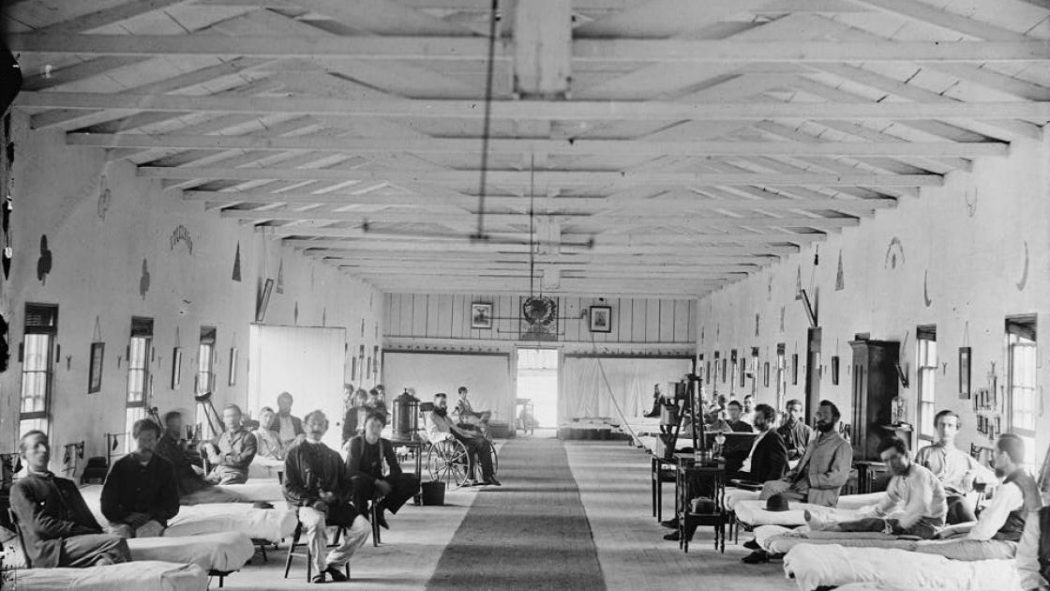Merriam-Webster defines insurance as:
1: The business of insuring persons or property, coverage by contract whereby one party undertakes to indemnify or guarantee another against loss by a specified contingency or peril, the sum for which something is insured.
2: A means of guaranteeing protection or safety.
True to our culture as a largely capitalistic society, the primary definition encompasses the “business of insuring” while the secondary definition addresses the insured’s “protection or safety.” Should it not be the other way around?
During the Civil War era, a primitive form of healthcare insurance had been established by employers, unions, and fraternal organizations. These “sickness funds” consisted of workers contributing a percentage of their wages to the fund and, should they fall ill or become too injured to work, the fund would provide them with cash. The primary intention was to protect or insure against unfortunate circumstances, as the workers could then pay for medical care with the money from these funds. Physicians, hospitals, and their services were accounted for, and this system worked so well that many historians correlate its success with the disinterest for healthcare insurance initiatives at the time.
All this changed during the Depression, when resources and money were scarce. Between 1929 and 1930, the reported payment of each patient dropped from $236 to $59, charity care rose by 400%, and contributions to hospitals declined by 66%. Such rapid financial strain was not sustainable, and Baylor University Hospital became the first to implement a just-in-case insurance program (though it wasn’t called insurance at the time). Fifty cents per month per person guaranteed 21 days of care in the hospital, with the distinction that this only covered hospital services. Though the intention of providing patients with an umbrella on rainy days was still at the forefront, the goal of keeping the hospital open — synonymous to supporting a struggling business — was rising in priority.
In less than five years, 26 such “hospital service plans” had cropped up all over the country. Shortly afterward, a commission decreed that each “approved” hospital service plan would hold exclusivity in a geographical region, allowing the plan a financial monopoly over its patients. In time, these services were ruled to be healthcare insurance plans, and the capitalistic intentions of these organizations were realized. The focus shifted from providing care and replenishing resources to coverage expansion and financial growth.
This shift in intention spawned the healthcare insurance system as we know it today. It is important to distinguish a service’s theoretical intentions versus its actual actions, and health care insurance today no longer places patients at the center of its paradigm. This is not to say that well-deserved compensation is not called for; financial stability is a necessity, but not at the expense of those whom the system are supposed to “insure.” Perhaps that is the most unethical aspect of healthcare insurance: that its primary intention is no longer to serve patients, but to function as financial rivals for each other, swayers of self-favorable policies in the upper echelons of politics, and leashes corralling physician decisions based on organizational gain.
It has been over seven decades since the conception of our modern healthcare insurance system. When shall the next shift be, and when will its intention reflect the ethical definition of “insurance?”
References
- Morrisey MA. Health insurance. 2nd ed. Chicago, IL: Health Administration Press; 2014. https://www.ache.org/pubs/Morrisey2253_Chapter_1.pdf. Accessed March 8, 2018.
- Insurance. Merriam-Webster. http://www.merriam-webster.com/dictionary/insurance. Accessed March 8, 2018.
Maggie Xiong is a medical student in The University of Arizona College of Medicine – Phoenix, Class of 2021. She graduated from the University of California, Berkeley, with a degree in Asian studies before taking a winding road to medical school. Maggie tries too many new restaurants (and subsequently Yelps about them), often cleans when she should be studying, and has a hopeless habit of opening too many tubes of mascara at once.

